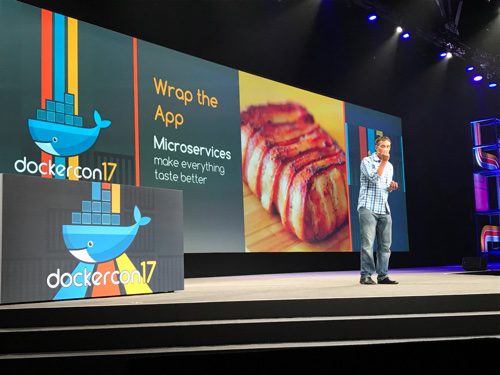AUSTIN, Texas — During the 1980’s insurance vendor MetLife had a popular slogan – ‘Get Met, It Pays’; at the DockerCon conference the 150 year old firm detailed how getting Docker has paid dividends for IT operations.
In a keynote address, Aaron Ades, assistant vice president, solutions engineering at MetLife recounted the long history of his company, which today has 100 million customers.
Cloud Storage and Backup Benefits
Protecting your company’s data is critical. Cloud storage with automated backup is scalable, flexible and provides peace of mind. Cobalt Iron’s enterprise-grade backup and recovery solution is known for its hands-free automation and reliability, at a lower cost. Cloud backup that just works.
“We have been in the information management business for 150 years and over that time we have had to make strategic bets on technology to stay agile and nimble and get ahead of competitors,” Ades said.
When MetLife was founded back in 1868 it wrote 1,477 policies in its first year of operation. By the 1950’s Ades said that MetLife invested in UNIVAC machines (the pre-cursors of modern computers) for large scale computation. In the 1980’s MetLife moved to a client server architecture and surprisingly some of the code written in 1982 is still running in production today, Ades said.
“Working with legacy is hard,” Ades said. “But customers don’t care they just want everything to work.”
So how did MetLife move to Docker? Ades said that a core strategy was to wrap all the apps in microservives.
“Like bacon, microservices, make everything better,” Ades said.
By moving to a container and microservices model, MetLife has been able to have a more modular workload and can is now making use of the public cloud. As part of the effort so far, MetLife has been able to reduce the number of Virtual Machines (VMs) that is uses by 70 percent.
“Docker let’s us run software apps written decades ago,” Ades said. “DevOps is transformative, you can move faster and you’re more nimble and that my friends is competitive advantage.”
Sean Michael Kerner is a senior editor at Datamation and InternetNews.com. Follow him on Twitter @TechJournalist.



